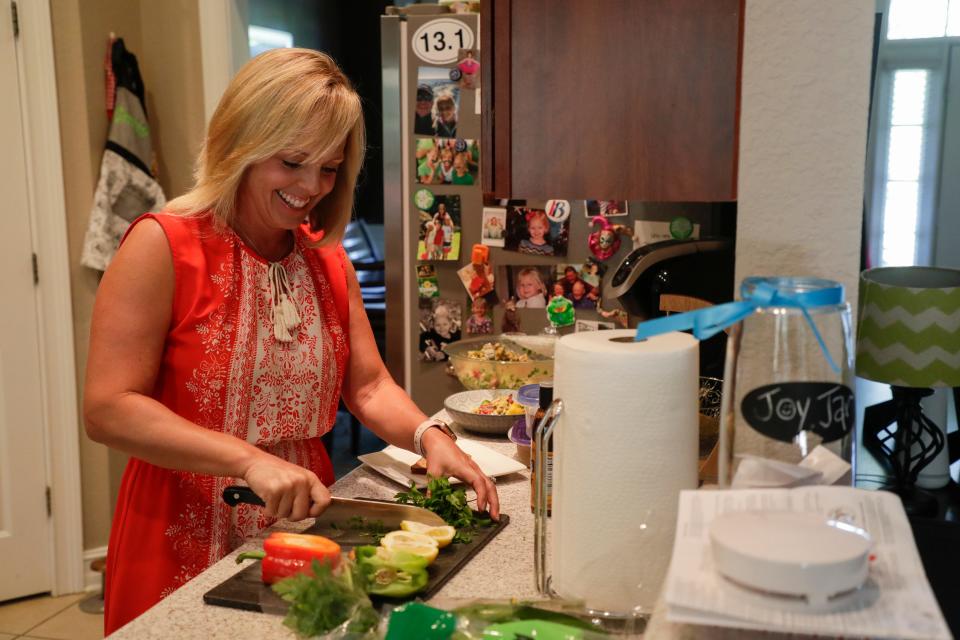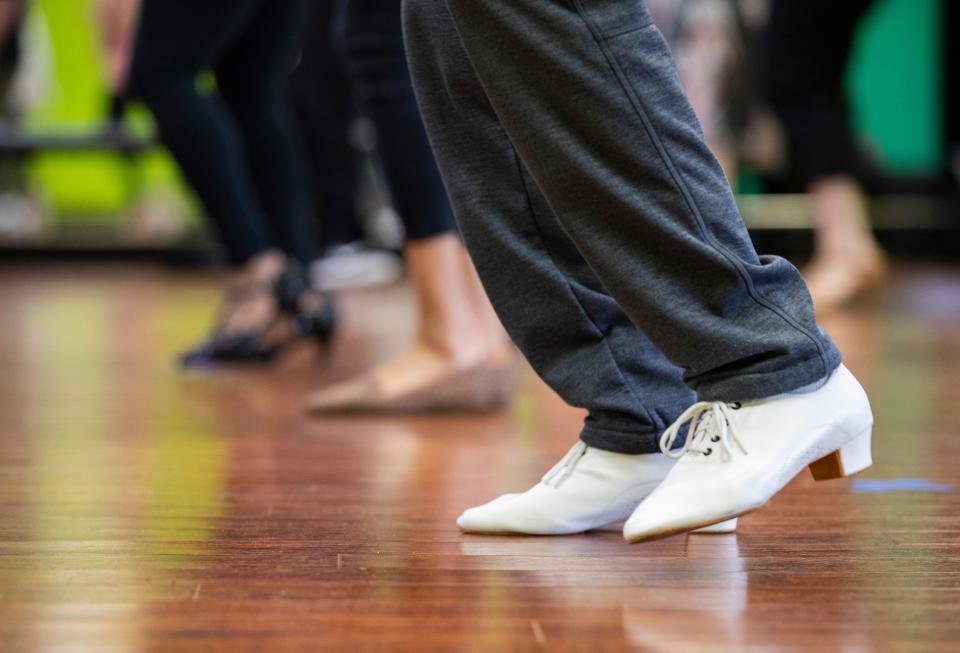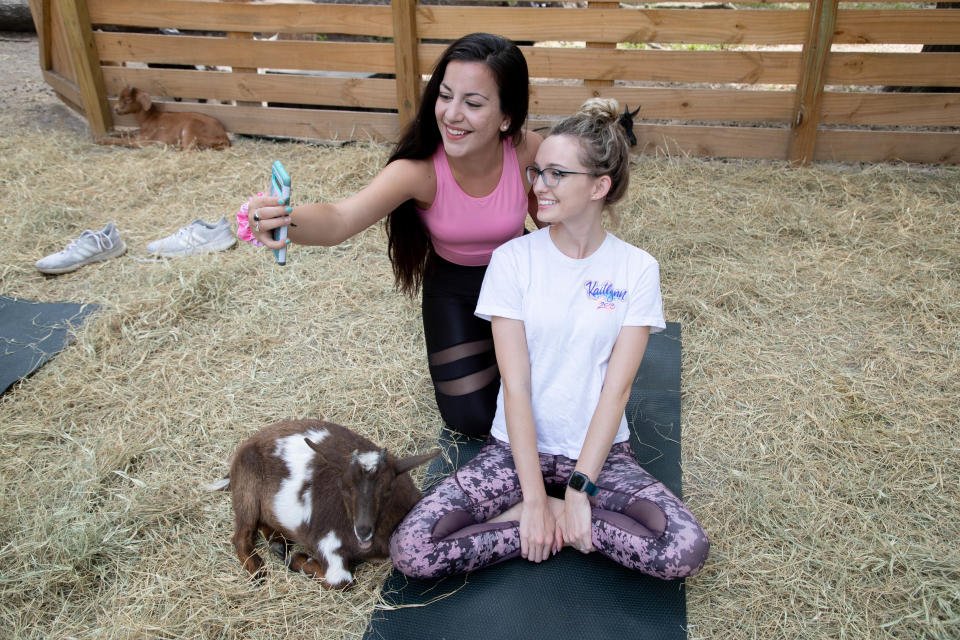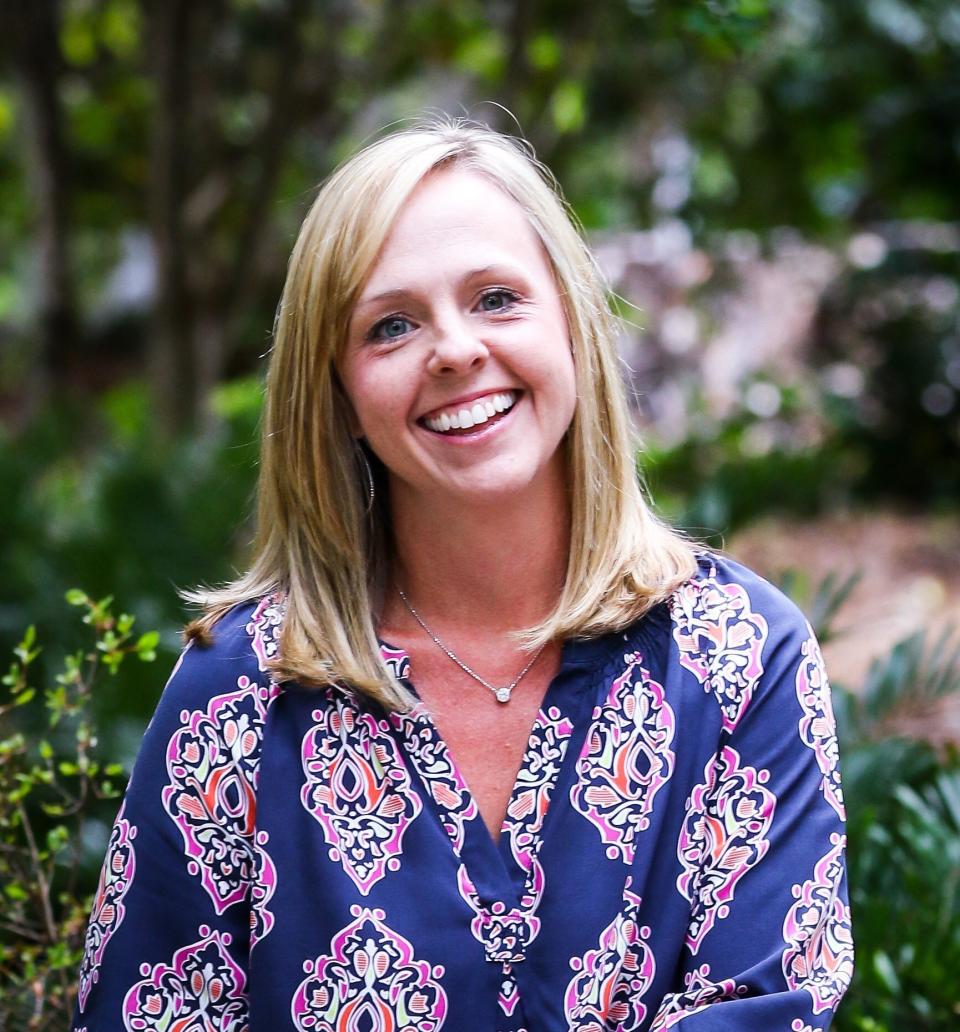Need a 'fresh start?' How to create healthy habits that stick | Anna Jones
My client (who gave me permission to share her story) came in wanting my take on her desire to lose weight. We’ve been working together for a while – not on weight loss – but on helping her eat in a way that feels good to her, feel better in her body, and manage her blood sugar with type 2 diabetes.
She said while it isn’t something she is ready to turn her life upside down to accomplish, as we begin 2024 she is feeling a desire to lose weight.

I asked her to tell me the words that come to mind when she thinks of weight loss. The words she said – HARD and FRUSTRATING.
Almost in the same breath she expressed a desire to move more, talking about pickleball and yoga and I could sense her mood lifting and a little bit of joy and excitement. I asked her what words came to mind when she thought of doing those activities. She said FUN.
We talked about the contrast between the two paths, weight loss and doing things that feel good to our bodies and that we know are beneficial to our health.
New Year, New You nonsense
As the new year begins, it is normal and very common to want to do something different, a natural human phenomenon called the “fresh start effect.” But, why does that have to be weight loss or stopping this or that behavior, or cutting back? Also, why do we think we have to throw everything out and completely start over?
What we know is that only 10% of people that make New Year’s resolutions stick with them. Here's how to take advantage of our natural desire to start fresh in the New Year without going on a diet destined to fail, setting goals that are all about scarcity and subtraction, or falling into the “new year, new you” nonsense.

The Fresh Start Effect
The Fresh Start Effect is a psychological phenomenon that refers to the increased motivation and renewed energy that people often feel at the start of a new time-based milestone – like the start of the new year, a birthday, the beginning of a new school semester, the change of seasons, or even the start of a new week. We naturally desire a “fresh start” at certain times to disrupt the minutia and everyday humdrum of life.
The feeling of wanting a change or to start something new is a wonderful thing to take advantage of. It is important to know that feeling the urge for a fresh start is a great way to get started, but what research on habit formation shows us is that it takes more than just getting started to create habits that actually stick.
We think we can just get started and then use willpower to push through, but willpower isn’t a reliable long term resource for making habit change. The getting started part is great, but beyond that we know there are some other important factors that can help us keep a habit or behavior change going.
Here are a few things to consider to help you build habits and routines that run on auto-pilot AND are enjoyable.
Make it fun
Building enjoyment and fun into any new habit is a great way to keep it going. If we are approaching any new habit with the feeling of drudgery because it is unpleasant, we aren’t likely to stick with it for the long haul. We often think we just need to push through the pain and misery, but this does not prove to be true.
I’ve written before about finding fun and joy in movement. If you want to move more, the first thing to spend some time considering is what would be fun or interesting or enjoyable. Or, if you want to learn how to cook, how can you make that fun? Maybe you take a cooking class or learn to cook with a friend. The bottom line is that people who bring fun and enjoyment into new goals are more apt to stick with them.

Make it about adding not subtracting
So often we make food related intentions that focus on taking away. A friend recently told me she was cutting way back on sugar and there is a lot of talk of Dry January right now. There is nothing inherently bad about deciding you want to eat less sugar or drink less, but in order for goals and intentions to last, they need to be less about restriction and more about adding in.

Try the opposite of going on a diet. Our brains just don’t like to be restricted and so therefore rebel. These are some options to consider that are all about adding:
Learn to cook/bake
Spend more time in nature
Move your body in new and different ways
Add in a food you know to be beneficial for the body (maybe it’s vegetables, maybe it’s fruit, maybe it’s nuts, maybe it’s beans, maybe its leafy greens. You pick.)
Spend more energy on loving people well
Sharing faith and hope with more people
Start flexibly planning meals
More travel
Dance more
Drink more water
More live music (this is one I set at my most recent birthday in October! Throughout this year I plan to see live music of some kind once a month.
More attention to the present moment
Try a new type of cuisine
Meditate more
More laughter
Start packing snacks and/or lunch for the day
More yoga/stretching
Be more kind and compassionate to yourself
More time in the Bible and in prayer
If you’ve made or thought about making some intentions for the new year already, how could you switch them up to make them more about adding to your life, rather than subtracting?

Expect setbacks and be flexible
Obstacles are inevitable. Life WILL get in the way. Resilience and the ability to bounce back after a setback is critical for any habit change to stick. I wrote all about recovering from a setback recently, so check that out for inspiration.
Be flexible: 5 tips for bouncing back after a setback | Anna Jones
When you plan for the reality of setbacks and obstacles you are building in flexibility. Any goal or intention that is flexible versus rigid is way more apt to stick. I think we think the opposite is true. That we have to have a plan set in stone and follow it to a T in order to be successful.
What the research shows us is that in fact building in flexibility and elasticity gives us options for regrouping when things don’t go quite the way we planned and allows the opportunity to find other solutions.

Pick a word to guide you
You might have heard of this. Instead of setting resolutions or goals, the idea is to pick one word to guide your intentions, behaviors, thoughts, and actions throughout the year. I personally decided to do this last year and it was so cool.
My word for 2023 was acceptance. I, and we collectively, tend to not be accepting of so much, which causes us distress and suffering. We struggle to accept ourselves, others, life situations, interactions with people, our bodies, aging, our choices, etc. so I wanted to work on being more accepting of everything.
It was amazing how that one word would pop up in my mind and serve as a reminder. Often times I would find myself struggling with one thing or another and I would hear a whisper of…are you approaching this from a place of acceptance?
I have decided this year to continue using acceptance as a guide, but to add on a new word, resilience.
The Oxford definition of resilience is “the capacity to withstand or to recover quickly from difficulties; toughness.” As life changes, I enter midlife, and my children grow up and move on I want to be able to approach this transition with resilience – and acceptance – of what is.
If this resonates with you, you might run through a list and see what stands out and then narrow it down to the one that fits your life and situation the best.
Wrap-up
So, I encourage you to absolutely take advantage of your desire for a “fresh start,” but to do it wisely. Don’t take on too much at once, but instead use the tips I’ve written about here and choose 1 or 2 intentions to work on at a time, maybe even one month at a time.
Real change and habit formation happen more slowly than we like but are far more sustainable in the long run. Buck the “new year, new you” mantra that implies that we have to completely reinvent ourselves and instead make real changes that actually might last beyond Super Bowl Sunday!
Need some support?
Want to hear more about forming habits that stick? Check out Episode #345 of the Ten Percent Happier Podcast, How to Change Your Habits with guest Dr. Katy Milkman. Dr. Milkman is a renowned behavior change researcher and NYTimes bestselling author of the book, How to Change: The Science of Getting from Where You Are to Where You Want to Be.

Anna Jones is a registered dietitian. Visit her website at annajonesrd.com.
This article originally appeared on Tallahassee Democrat: Get a fresh start with healthy habits that stick
